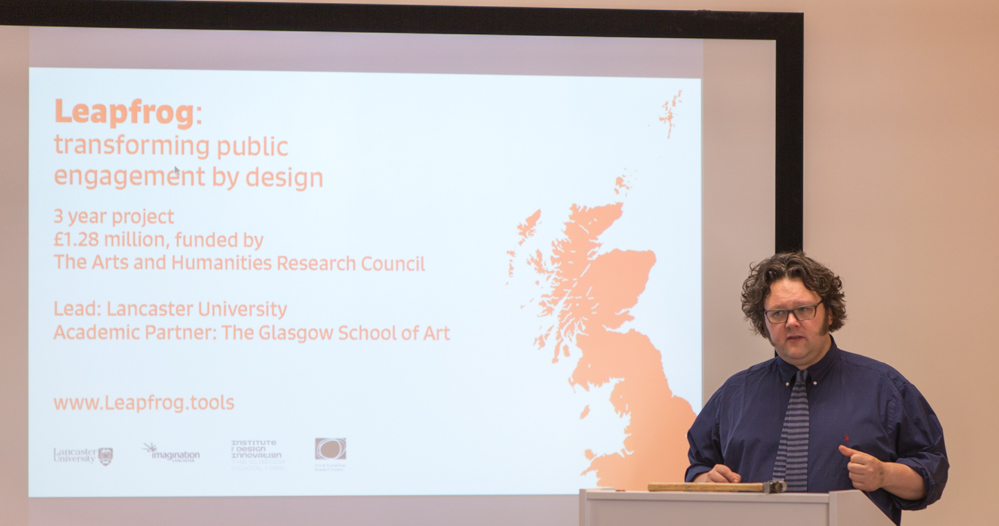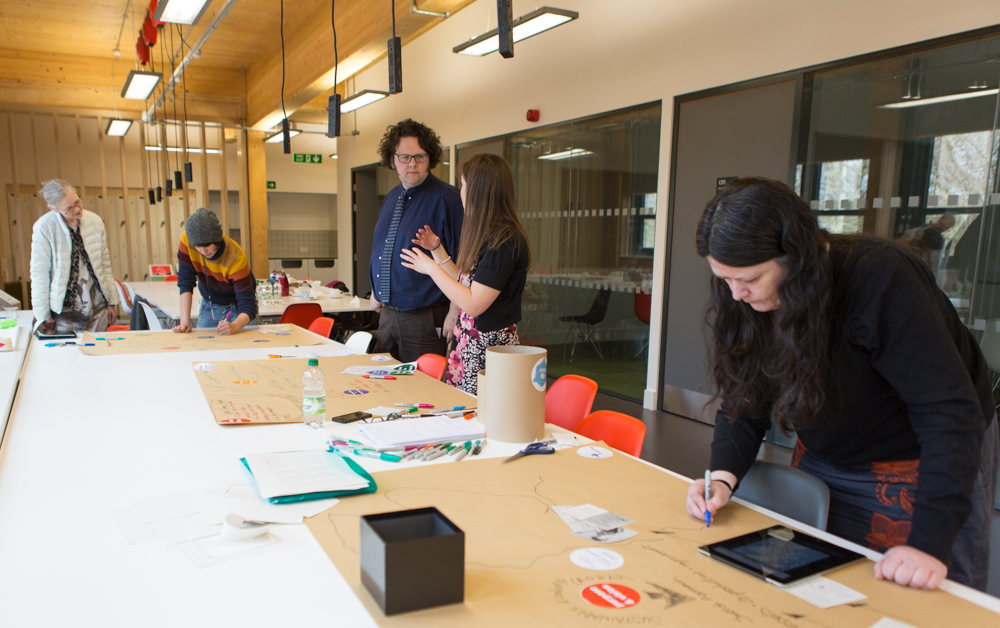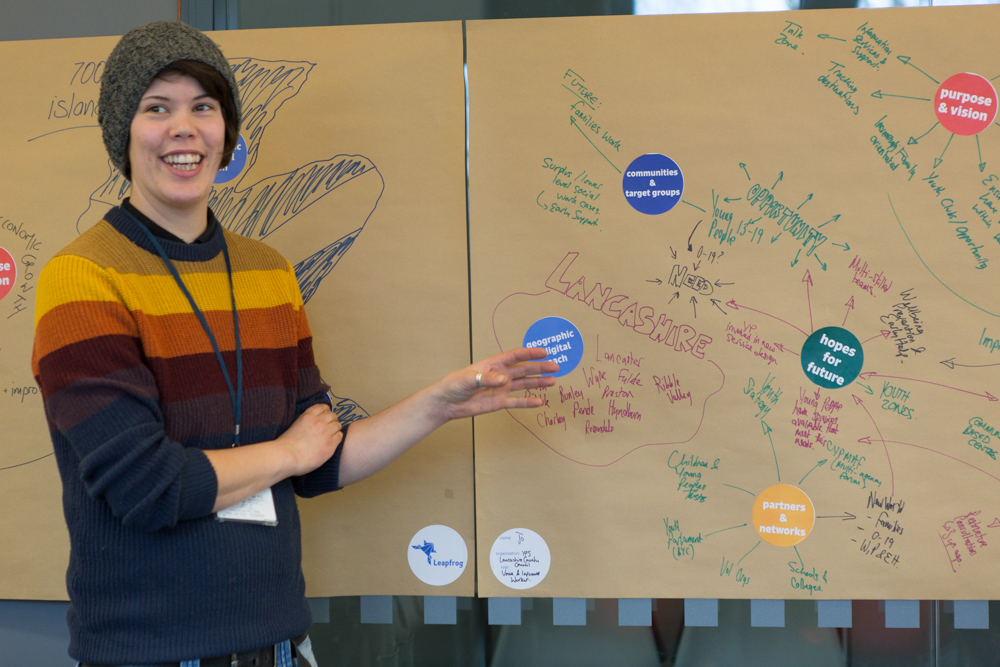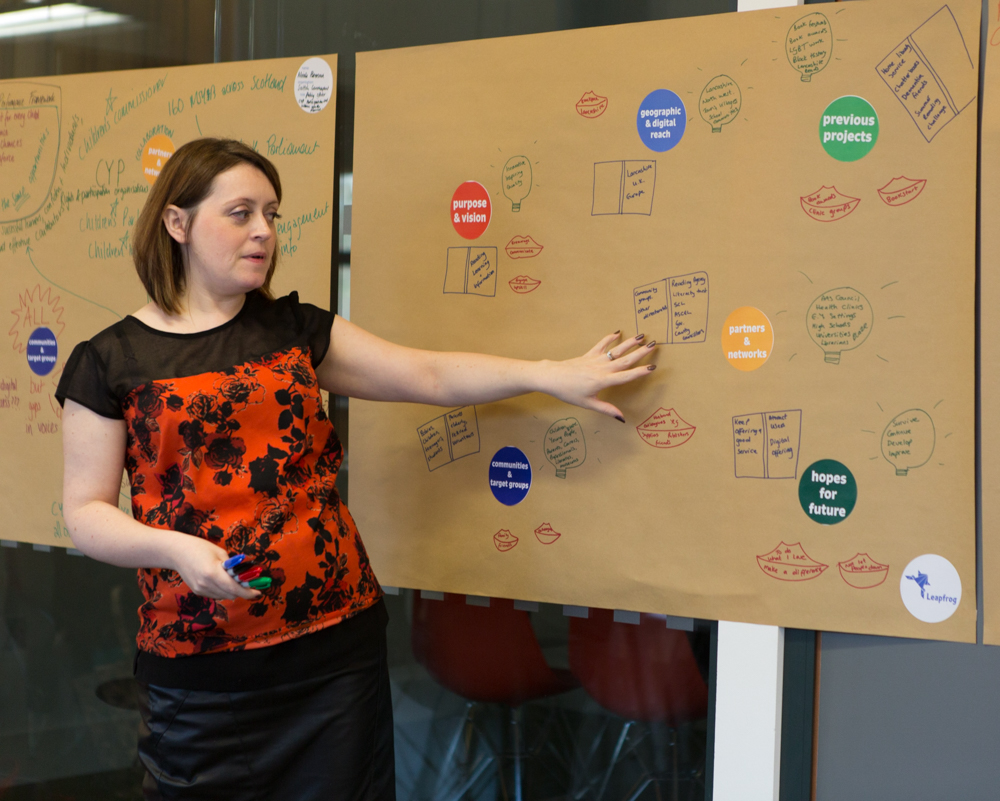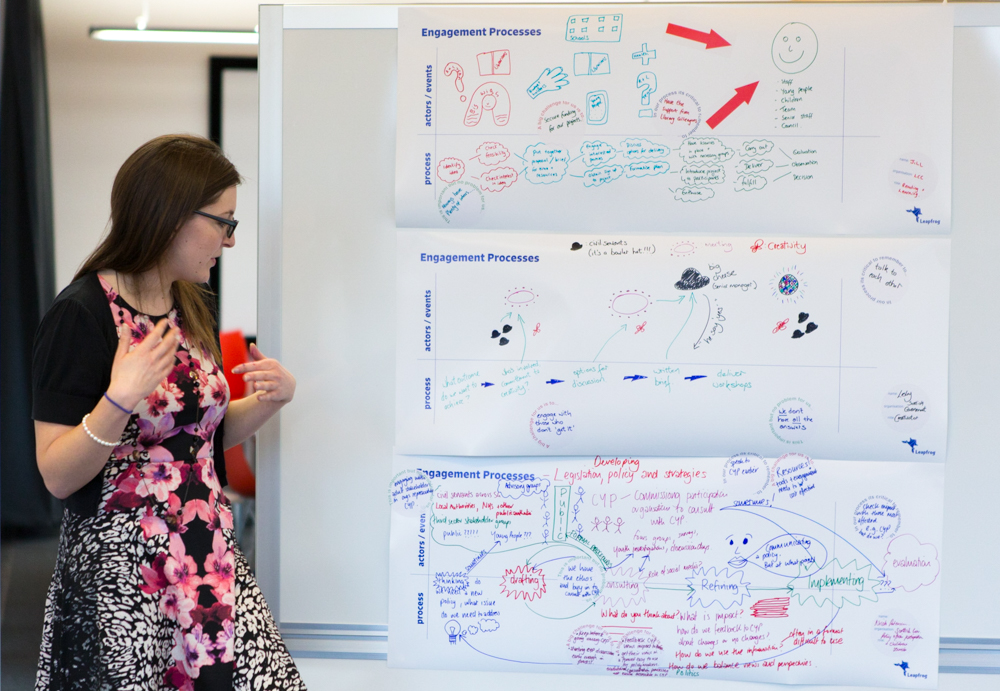Leapfrog is running 5 major projects throughout its 3 year duration. The first of these, led by Lancaster University is looking at the challenges of engaging with young people. We are loosely defining young people as teenagers and younger with the partners we are collaborating with having their own focus within this age range. These partners see working productively with young people as rewarding and critically important but very challenging. It was this strategic need that motivated us to make this the focus of our first major project.
The first event for this 8 month project gathered together a select but wide spectrum of our public sector partners from national government policy level who commission a great deal of engagement activity to youth workers at the engagement ‘coal face’ day to day.
One of the surprising things to emerge from the facilitated meeting was the central importance communication played in the challenges identified in working with young people. This was very much not the case of public sector workers looking for ways to ‘consult at’ young people. Rather there was a strong feeling from Policy, to Services (like libraries, health or green space) to youth workers that the issue was the translation back and fourth between young people and the public sector. In particular there was an issue of translation between these groups in such a way that the information (stories, data, drawings, plans or proposals) could be communicated in a way that had value for the recipients.
There was some excellent, creative engagement highlighted by the partners. All partners raised the challenge of translating this engagement into a form that could contribute to an evidenced based approach adopted by the public sector, how could stories be seen as contributing is a rigorous defendable way? Similarly how can plans and proposals that sometimes might take many years to come into fruition be communicated in a manner meaningful to young people and how could their (vital) contribution be recognised and communicated when they had unrealistic expectations for how quickly there would be tangible change?
These and other issues will form the heart of our major project in this area. Our aim is to work directly with a small number of partners but for this to be a test-bed to create a range of resources that will help all our partners and a wide range of others who work with young people to do so in a more mutually productive manner.


